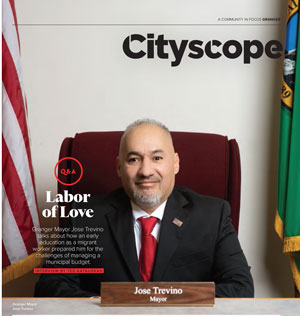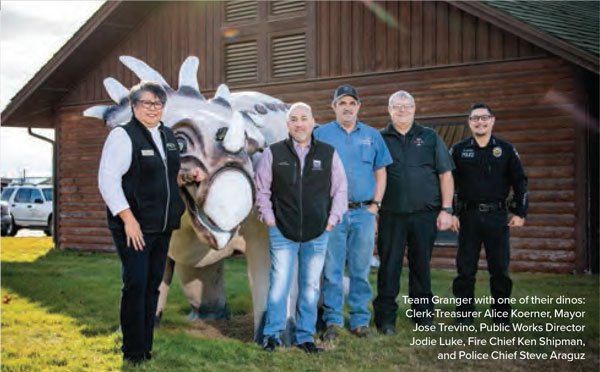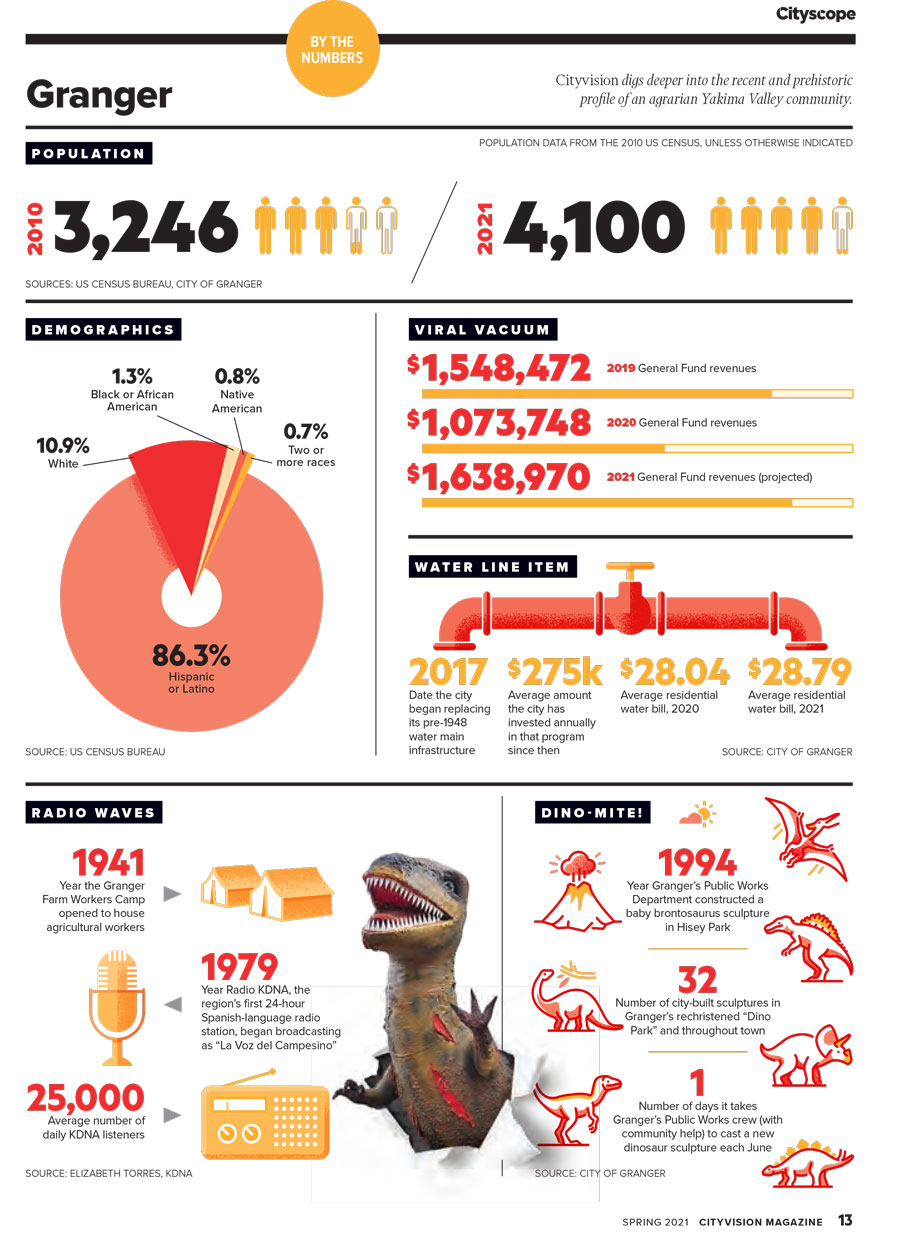Granger Mayor Jose Trevino talks about how an early education as a migrant worker prepared him for the challenges of managing a municipal budget.
Interview by Ted Katauskas

Granger Mayor Jose Trevino
You were born in Texas. What brought you to Washington?
In 1978, when I was 8 years old, we came here as migrant workers to work in the fields and orchards. We started cutting asparagus, then we’d move around the state, picking
apples, cucumbers, blueberries, and strawberries, then we’d move back to Texas. We were homeless, so we slept in our car: me, my mom, and my brother and sister.
How did you end up in Granger?
My mom was a single mom and decided that these kids need more stability, so I’m staying here. We lived in Grand- view, then Sunnyside, and came to Granger in the early ’80s, then moved back
to Sunnyside.
After graduating from Sunnyside High, you worked as an EMT, then as a police officer in a number of small cities around the state, including Granger.
I came back to Granger in 2005 as a police officer, then got hired by the state
in 2006 as a fraud investigator with the Department of Labor & Industries.
After a rough childhood, you and your siblings all landed on your feet. Who do you give credit for that?
Obviously my mom. She never raised us to play the victim; she always told us, “If you want anything in life, you have
to work for it, and you never take handouts from anybody so that you never owe anybody anything.”
You were elected to Granger’s city council in 2013. What prompted you to get involved with local government?
I’ve always been interested in politics, and then getting into law enforcement and being a public servant, I
saw how government agencies were run. I was always told, if you want to change things, you need to get in there and be that change. So I thought, “I’m going to get involved and do that.”
Describe Granger.
We’re a low-income community of 4,100; 36 percent of our population is below poverty, and 86 percent are Hispanic. Our biggest employer is the school district, but most people work in labor, out in the fields
and orchards. It’s a community where everybody knows everybody, and everybody helps each other. We’re also known for Radio KDNA, which is the public Spanish radio station mostly for farmworkers.

Team Granger with on of their
dinos: Clerk-Treasurer Alice Koerner, Mayor Jose Trevino, Public Works Director Jodie Luke, Fire Chief Ken Shipman, and Police Chief Steve Araguz
“The whole purpose was to have the infrastructure to support development, and we're starting to see the fruit of that.”
You were appointed to fill a vacancy as Granger’s mayor in 2016, then were elected to the position in 2017. What issues did you grapple with initially?
When I took over in 2016, I inherited an $84,000 deficit in our budget.
That doesn’t seem like a lot, but for a small city like ours with hardly any commercial revenue, that was a huge challenge. I was appointed in November, and by the first part of January we had gotten rid of the deficit and had a cash carryover
of $100,000.
How did you get rid of the deficit?
It was actually really simple: I just put in a spending freeze. We started cutting expenses like magazine subscriptions and all these things that we were paying for every month. Every year during
the budget season, I put up a spending freeze to make sure we have cash carryover.
How did the pandemic impact Granger’s budget?
We definitely had a reduction in revenue, just like every other city did. We lost out on property tax and some sales tax and a lot of fees that we collect in a normal year, like
late fees for utilities because you can’t just shut off somebody’s water during a pandemic.
Are you doing anything different with the city’s 2021 budget?
We’re keeping the hiring and spending freeze we implemented last year in place, because we don’t know how long this pandemic is going to go on. And we’re
going to be working on identifying additional revenue sources for the city. Our city is going to grow. It’s coming, and we’ve got to be prepared.
To that end, during your tenure Granger has been investing surplus revenue, and grant money, in upgrading the city’s water lines.
The whole purpose was to have the infrastructure to support development, and we’re starting
to see the fruit of that. We have a general store that’s going to be opening here in town, and we have new housing developments coming in.
As a Spanish speaker, you’re a regular voice on local radio. What’s your message?
I say, “No matter what your citizenship is, you pay taxes here, and we’re here to work for you.”
Your biography certainly gives you credibility.
We speak the same language; we have the same culture. I think that helps a lot. They say, “He slept in a car for months, he worked in the fields, he bathed in a horse drinking
trough because he didn’t have a bathroom or shower. He understands the struggle.”
Best thing about being mayor?
Working with an incredible city staff that is very dedicated and committed to the community. The success of this city is in part because of their work.
